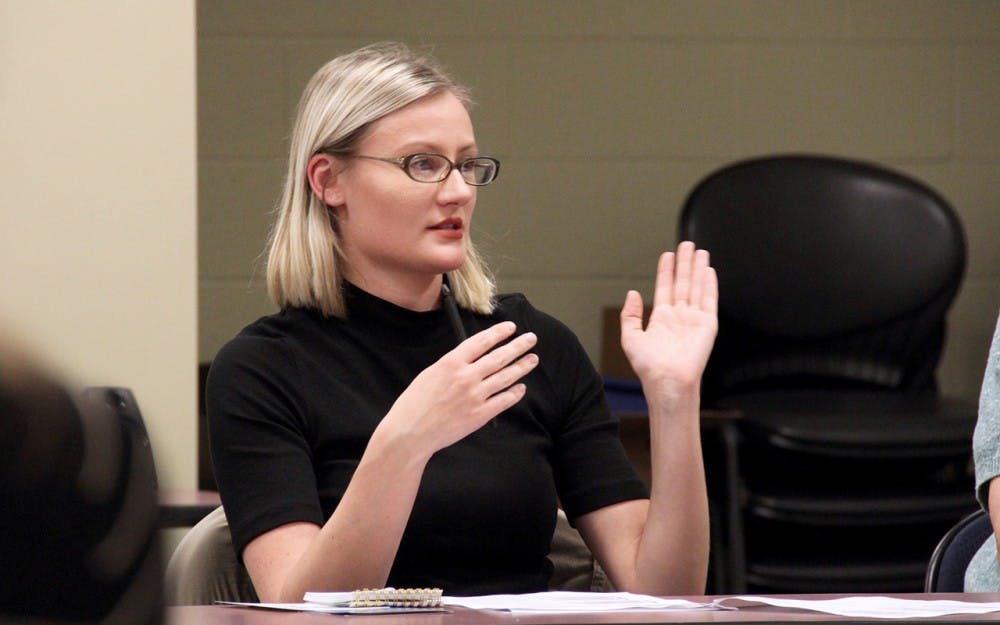In a small conference room in the Monroe County Community Schools Corporation building, Dr. Cathy Pratt assured parents that she didn’t have all the answers.
Pratt is the director of the Indiana Resource Center for Autism, a statewide program that works to address the needs of individuals on the autism spectrum, not just in their education but throughout their life.
Eleven parents gathered in a circle Thursday evening, each with students either on the autism spectrum or with additional special needs.
Pratt said parents must have routines for their child. She said change happens, and change is one of the most difficult things for children on the autism spectrum to understand.
“For each of your children, the balance is going to be different,” Pratt said. “For each of your children, success will be different.”
She addressed that 70 percent of people on the spectrum in the state of Indiana are under- or unemployed.
She said simply accommodating a child is not the answer, but pushing them with a safety net of sorts will help their child succeed in the future.
Pratt goes to schools around Indiana speaking with parents with children on the autism spectrum. She addresses the concerns of parents and trains them in handling and de-escalating crisis situations and in developing behavior intervention plans and strategies for reducing problematic behaviors.
She said the resource center also does individual consultations for families.
“We get a lot of phone calls from families when children are having difficulties,” Pratt said. “Every day I’m in almost a different city.”
At Thursday’s parent support group presentation, Pratt said children on the spectrum will use their behavior to communicate. She said in behavior programming there is too much focus on the deficits, when there should be more focus on what children are successful at.
“Instead of saying no all the time, tell a child what to do instead,” Pratt said. “If you take a behavior away and don’t replace it with something social, they’ll often act out instead.”
She highlighted tools on dealing with “heat of the moment” frustrations with their children. This includes how to keep the whole family safe in escalated situations, including physical and mental escalations with the child and parent if the child is acting out.
She said choosing battles with the children is important, something parents admitted was difficult at times.
Esther Asplund, a parent with a son on the autism spectrum, said she started helping organizing the support group nights five years ago.
“I try to schedule meetings for the parents,” Asplund said. “I find that attendance is better when there’s a more formalized speaker setting to guide the parents.”
Parents asked questions regarding the definition of reinforcement and punishment for their individual children. They spoke together on common issues and experiences as they are raising their children, including connecting with other children, social media, communicating with their child and helping the children’s quality of life overall.
“You got to look at your child in the big picture, what’s going on in the senses, in their world, that makes them only want to wear one thing,” Pratt said. “Start reading their behaviors — it will tell you things.”




